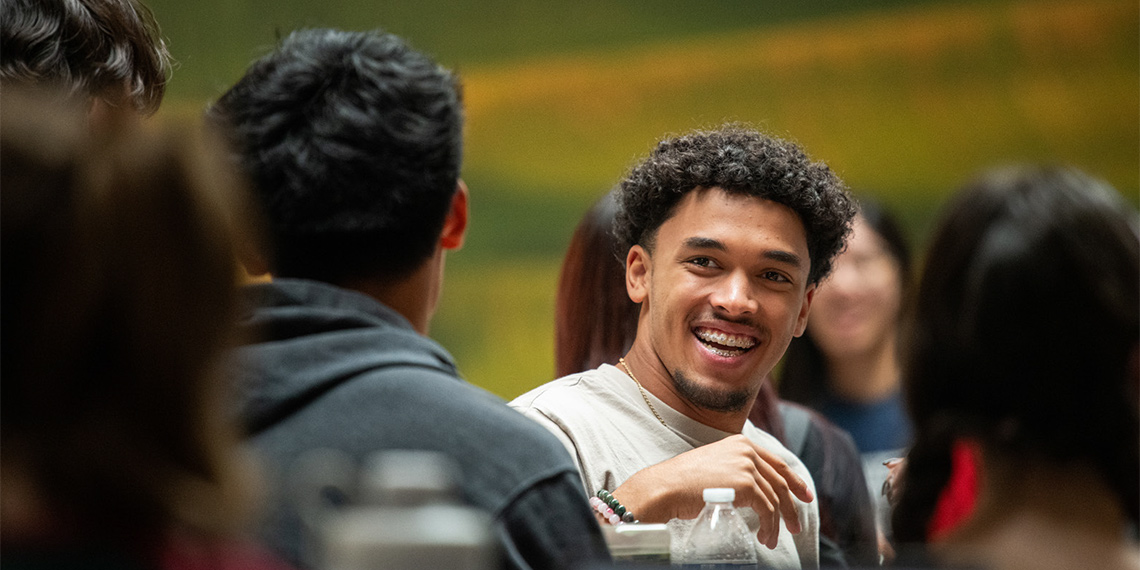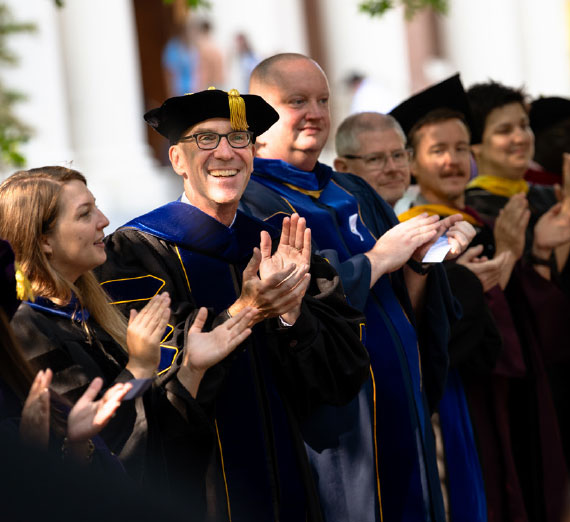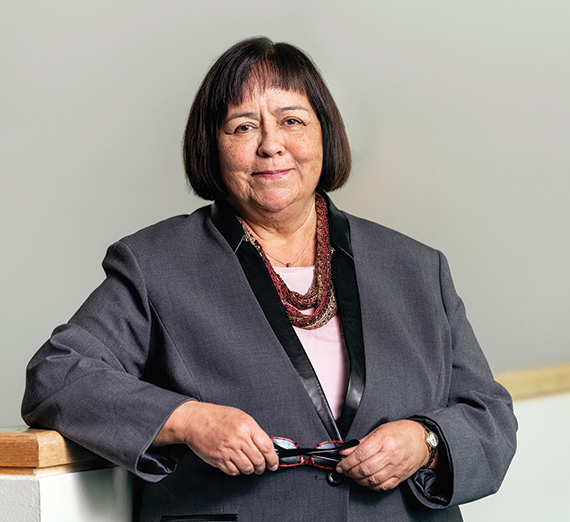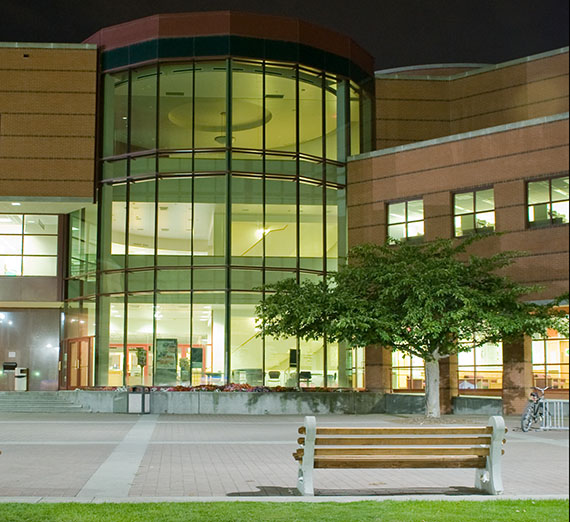A Strategic Pause, Then Onward

Provost Sacha Kopp began at the Fall Faculty Conference reflecting on our national context, one in which there is much isolation and even sadness following the COVID pandemic, and in our national discourse a great deal of contention. Recalling a recent article by author David Brooks in The Atlantic (“How America Got Mean”), higher education has an ever-present importance in this national context and we can all reflect on the transformational work the Gonzaga community gets to do for its students.
Brooks, Kopp noted, wrote that people are pretty brittle in 2023, and just not very good “at being with one another.” But Brooks emphasized that education is one of society’s pillars that once was relied upon to teach people relational context, and “even a moral context,” and that “felt really important to me,” Kopp said.
“I was grateful to take a step back from the numbers,” Kopp said, like enrollment statistics and utility bills for campus buildings, and instead “talk about purpose, and how we get to do something special.”
“We get to teach in a way that is different. We get to, in our own context as a Jesuit institution, lean into a purpose for the education that is altogether different. So I felt a bit better after that … It’s sometimes possible to lose sight of why we’re here. It made me feel good about the work that you all do, and it made me feel good about what unites us in coming to Gonzaga in particular.”
Kopp acknowledged the heavy workload that faculty undertook last year, from helping students through the “new normal” of almost-post-COVID life on campus to working through the Grand Challenge to passage of an update to the Strategic Plan just a few weeks ago. And while both he and President Thayne McCulloh spent parts of their presentations to faculty outlining some financial challenges, Kopp emphasized that Gonzaga’s retention rate actually went up last year. And for that he credited the faculty’s hard work.
“And that’s important, because if families are spending money to come here, and wanting their kids to be successful, we do our level best, and it’s showing,” Kopp said. “We know they’re coming in with different challenges than years before, but it’s working. Whatever is happening inside the classroom or outside the classroom, it is working.”
The difficult work undertaken by faculty and administrators last year, Kopp said, including the ongoing efforts to revise the faculty handbook and develop the strategic plan, should relent some. “We have to kind of digest all of what we accomplished in the last year,” he noted. And reflection is needed to put new ideas into motion in the coming months. “We’ll spend a lot of time talking about the Strategic Plan this year, and although we have a great document and a great framework and a couple hundred pages of Grand Challenge proposals from last year, there’s a lot to figure out, there’s a lot to think about,” Kopp said. “We get to spend time talking together about that, and I hope that you’ll stay involved and you’ll continue to invest your time and creativity because those opportunities are meant to be ways that all of our schools can be involved in helping shape the academic future of the institution.”
In a relational institution like Gonzaga, doing this work together in community is all the more fulfilling.
- Academics
- Spirit




